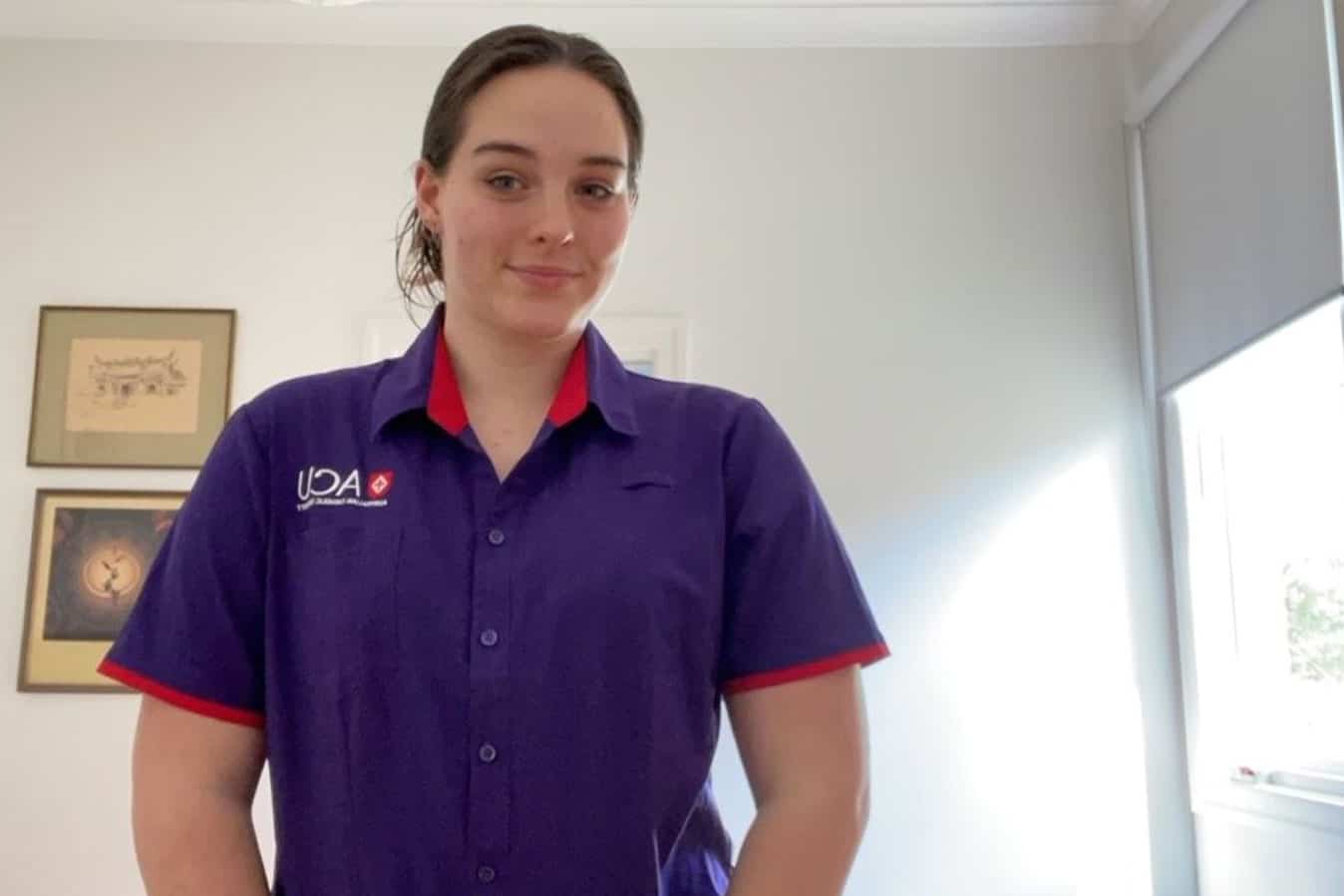Clinical placements give nursing and midwifery students the opportunity to build critical hands-on skills.
For first-year nursing student Matilda Preston, heading into her initial clinical placement in aged care presented an unknown. She felt nervous, and didn’t know what to expect about working in the sector.
To help future nursing students, Matilda shares the 10 top things she wishes she knew before attending clinical placement.
1. Preparation
Arrive at least 15 minutes before you have to be at the facility to have the time to put your stuff away and get ready, as well as ensuring that you have your notepad and pen handy to take notes at handovers.
Always be prepared for anything in aged care – it’s very different to what is shown on TV, and there’s a lot of tasks you don’t even realise nurses do in nursing homes.
2. Communication
When communicating with the healthcare team, make sure you understand them and they understand you before a task is completed.
As a student nurse, you are bound to find things a little bit confusing, and that is okay. Ask them to repeat themselves so you know what your role on a shift is, or who you are supposed to be buddied up to.
As well as the healthcare team, you have the patients and families to communicate with. This is one of the hardest parts of nursing, but the more you practice, the easier it becomes.
Converse with the patients with some everyday conversation if you aren’t busy, and when you are providing care, ensure that you communicate what exactly is happening and why. When communication is clear, everything moves so much more smoothly.
3. Assertiveness
As daunting as it is being a student nurse, only having completed a year of university and attending a placement, you know your scope of skills, and you may have to remind those in the facility of them.
You may have to remind them that you can actually assist in transfers, or showers. On the other hand, it may be that you have to remind them that you cannot actually do something, as you have not been taught it yet.
Being a student nurse is about learning. You have to ensure that you assert your presence, as it is required, and make sure you are getting the most out of the placement.
4. Scope of Practice
Know your scope of practice, understand everything that you can or can’t do, and even what you can or can’t do without supervision.
When you know your scope of practice, you are able to inform the healthcare team that you work with of your scope, to ensure that you only do what you can do, while still learning.
5. Patient-centred care
When you’re a student nurse, you are able to spend time getting to know the patients by sitting and just having a conversation.
Ask them about their families or their lives. You can learn so much just from what is around their rooms (pictures, cards).
During my placement, I realised how much the patients actually appreciate student nurses, as they are fresh new faces and love a chat. You make their day just by asking questions to get to know them.
6. Support between other students
Lean on your fellow student nurses. You will be placed with other students to give some familiarity to the new environment, but they are your best friends for the placement.
You may not always work at the same times, but if you don’t understand something that you’ve been asked to do, they are there for a conversation.
In your breaks you can talk about what you’ve learned and just be a friendly support. They are always just as nervous and stressed as you, so let it all out together, and don’t close yourselves off to each other.
7. Asking for feedback
After you complete a shift, or assist your buddy nurse with a task, ask them how they think you did, or if there’s anything you can improve on for the next day. This assists you with learning, and shows the buddy nurse that you are keen to learn and want to be actively involved.
8. Accept learning challenges
There will be many things that you come across on placement that you might not think too highly of. The only way you can learn – especially in a hands-on role such as nursing – is by actively participating every chance you get. Even when you may be grossed out, or you might be not so sure in your previous practice, ask for help, and still try it.
9. Breathe
Make sure you breathe, don’t stress too much. It really isn’t as scary as you think, and you do know much more than you think. You will surprise yourself everyday with your knowledge retention.
10. Enjoy
I had the best time on placement; once I found my footing, it was amazing. The first couple of days anywhere new is always tough, but push through, rely on your other student nurses, and just take in everything. You will have fun, and you will enjoy it.









One Response
Important advice that can be applied across many workplaces, we are always learning, or at least should be!